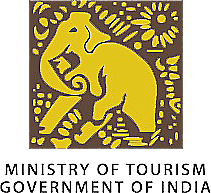
We’re now about nine months into the coronavirus pandemic that has changed the world as we know it forever.
There’s been much upheaval in the industry we love so much, and things are still uncertain. It was startling to see a near-total collapse of the airline industry in March and April this year. But, as we’ve moved through this pandemic and learned to live — as well as we can — with this virus, the travel industry has adapted in many ways. While there are some things we hope will not be permanent changes, there are aspects to the new normal that I hope do stick around long after the pandemic is in the rearview mirror.
And, we recently received tremendous news: Pfizer’s candidate for the coronavirus vaccine has shown to be very effective in trials, and could be released for the public in 2021. With this development in mind, we can reasonably begin to think of the post-pandemic world.
Now, based on all we’ve learned since the pandemic started, let’s take a look at how the travel industry will look going forward.
Changes in air travel
As we did after 9/11, we’ve adapted to a new normal in air travel.
At the airport, signs marking the appropriate distance between people are all over the floors and everyone wears a mask (or at least should). Health officials checks the temperature of an incoming passenger during a health assessment at every airport checkpoints. Most airlines have also moved to a back-to-front boarding process, though this hasn’t proven to cut down people’s tendency to crowd gates or to rush, all at once, to get off the plane.
Wiping down seats with disinfectant has become common. Face masks are required from the moment you step in the airport. Also, several carriers blocked middle seats in economy and capped capacity in first-class cabins through the summer. Most airlines have signaled they’ll sell every seat in the cabin once again in just a few weeks, while a couple said they’ll continue blocking seats through the end of the holiday season.
Investments in technology
The pandemic can push us to think of better solutions for what will inevitably be an issue once travel climbs back to the levels we saw in 2019. Whether at check-in, security or immigration, having hundreds of people slowly creeping along in small spaces will no longer be acceptable.
Luckily, we have technology that can dramatically improve those processing speeds, including biometrics. While privacy is a concern, we need to look at the bigger picture. Millions of lives are on the line and viruses know no borders.
There are plenty of other steps to be taken that can help guard the traveling public against infectious diseases. Delta, for example, partnered with the TSA to introduce antimicrobial bins at automated screening lanes to help stop the growth of a wide range of bacteria.
Select airports have now begun offering COVID-19 testing for passengers. Airlines have done the same for people heading to specific destinations.
We’ve learned over the course of this pandemic that flying is a relatively safe activity. But, as it stands now, there’s no coordinated national effort to test people regularly and accurately, so people aren’t necessarily confident in traveling to destinations by air.
With a robust testing-for-travel policy in place, we could get the country — and the world — moving once again.
Cruise industry
Cruise lines will need to keep pressing forward with these types of testing plans, but also need to have solid back-up plans if (when) things go sideways.
But, I’m still optimistic about the industry’s future. Cruisers are among the most loyal customers in the travel world. Cruise companies have continually evolved over the years and It’s clear they will need to offer better onboard medical facilities and testing for all kinds of illnesses. Better ventilation and sanitation systems will be needed to ensure that outbreaks can be contained.
Sprawling buffets are a staple of cruises that won’t disappear but the free-flow approach to grabbing heaps of food will be rethought. Expect the same bounty of choices but with smaller amounts on display at any given moment.
The hotel industry
Hotels have been rocked by the collapse in travel that’s come as a result of the pandemic. In an effort to boost consumer confidence, all the major hotel chains have implemented stricter cleaning protocols, ramped up contactless options for certain functions like check in and room service ordering and delivery.
Many properties have suspended daily housekeeping services to cut down on the contact between staff and guests but in between stays, rooms are given deeper cleans and several hours to “rest” before another guest checks in.
After the pandemic, we may see some of these changes go away (I know I’d love to see the return of daily housekeeping), but the hotel industry has helped usher in a new travel trend that will likely have some staying power: the work-from-hotel concept.
The main downside to remote work — as many are finding out — is being stuck in a home office day in and day out. But, with the flexibility remote work provides, there are opportunities to combine work and pleasure into one “workcation.”
My personal future travel perspective
The pandemic has taught me to be more intentional with my travels. I’ve learned to no longer take the privilege of travel for granted. I want to make each trip count and visit the places that will push my boundaries while nurturing my soul.
Looking to the future, hiking Machu Pichu is at the top of my list when it’s safe to travel.
Bottom line
We are living in unprecedented times, and while it pains me to see the travel industry still in such an uncertain place, it’s learned a lot of valuable lessons over the last several months, and I’m confident we will all emerge from this crisis with a better outlook on travel and humanity as a whole.
When people travel, they expand their minds and become better people. Travel is an antidote to so many of the social ills that still persist in the world today. While travel can’t kill the virus, it will be a key part in reconnecting a healing world and reuniting the human race.








© 2023 Bucket My List